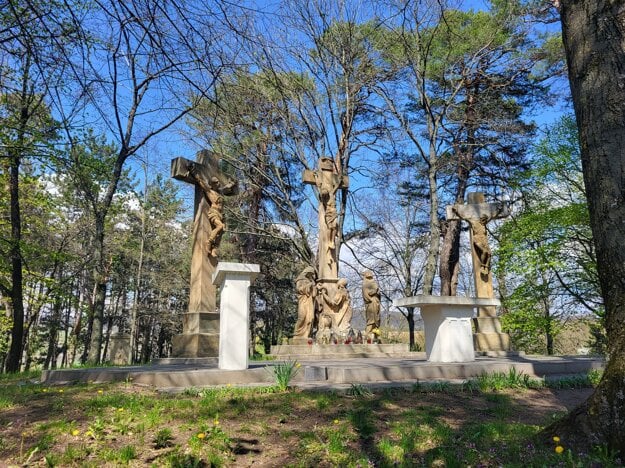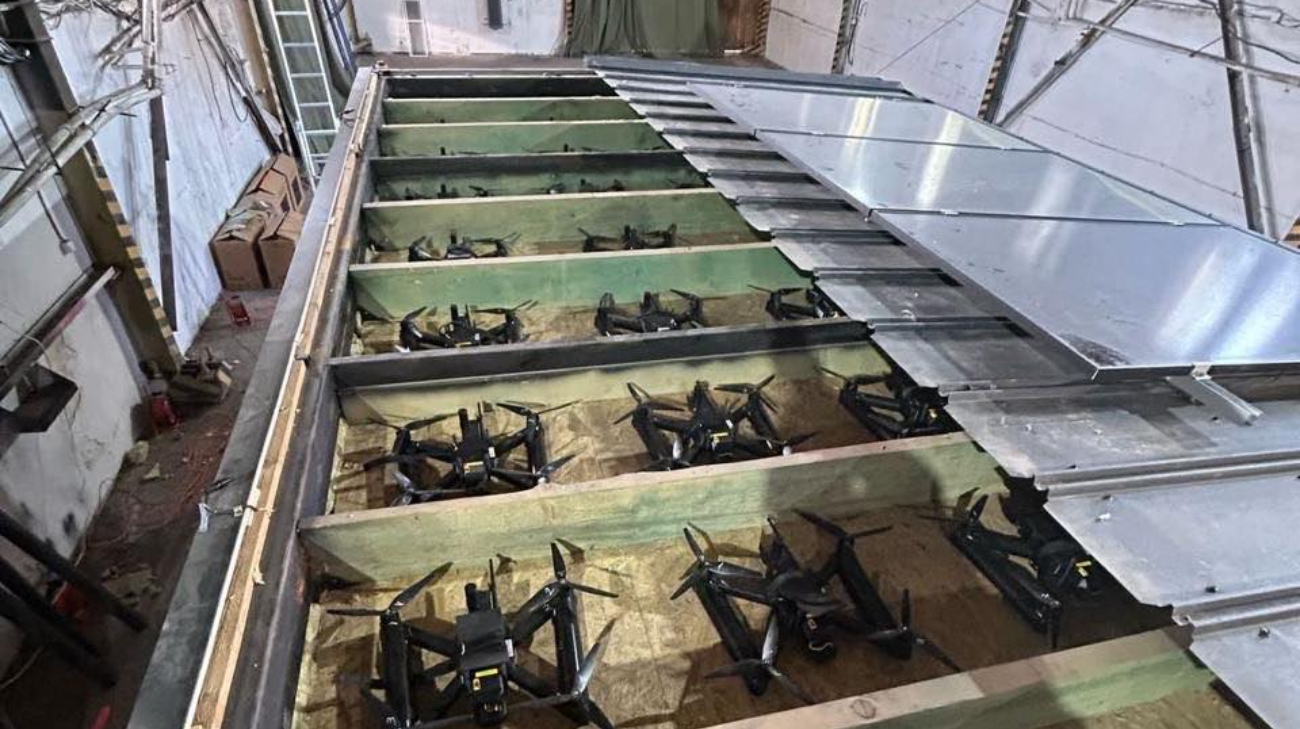Opinion | The Netherlands as an administrative desert
/s3/static.nrc.nl/images/gn4/stripped/data79584748-c89f4c.jpg|https://images.nrc.nl/_svZM7jGhxsWrOZJ7YrRg945Tiw=/1920x/filters:no_upscale()/s3/static.nrc.nl/images/gn4/stripped/data79584748-c89f4c.jpg|https://images.nrc.nl/WfOOiIQGT-As-r11Iofydg3vm7U=/5760x/filters:no_upscale()/s3/static.nrc.nl/images/gn4/stripped/data79584748-c89f4c.jpg)
And there Geert Wilders caused a new fault line in the fickle world of New Rights. The coalition with three relatively new parties (PVV, NSC, BBB) who almost got the post -war political order to its knees in 2023 fell apart after a year of rule. The radical-right PVV left his two New Rechts allies, BBB and NSC, both badly damaged, in the cold. Thanks and see you soon.
The VVD, the only one with administrative experience, ended up automatically in the camp of BBB and NSC. They know Wilders at the VVD. In 2004 he suddenly left the Chamber Group. In 2012, as a tolerance partner, he floored the first cabinet of Mark Rutte just as unexpectedly. And Tuesday the PVV leader blew up the Shoof cabinet (PVV, VVD, NSC, BBB). For example, he caused a break within the right for the third time in his political life. The Stokebrand had struck again.
Wilders personifies the rise and inability of the fastest growing current in land politics. Number large enough to take over the dominance of the post -war order – the old people’s parties. But so deeply divided that this dominance is for the time being an unreachable ideal.
The special thing is that on the right is the main engine of falling trust in democracy becoming. Right -wing voters, often driven by migration criticism, have been served poorly for years. Usually they do not get what they hope, also because parties on that flank excel in unattainable promises – ‘borders closed’, et cetera.
The three right -wing coalitions of the past quarter century illustrate this. As Wilders treated his supporters in 2012 and this year treated to an early break, Pim Fortuyn supporters had to ensure that Balkenende I (CDA, LPF, VVD) lasted less than three months in 2002. Coalitions of traditional parties often fill up the four years.
Which makes right -wing coalitions special: atmosphere spoils due to bad personal relationships and lack of political skills. Just as LPF-Vice Prime Minister Eduard Bomhoff thought it would be fighting the argument in his own circle in 2002 with a bell, according to Minister Marjolein Faber (asylum and migration, PVV) that she was finished rule as soon as she had neatly executed the commandos of Wilders.
No self -control
It also underlines that election campaigns – interviews, debates, voters – are hopelessly outdated. Political competencies are never tested: Can the party leader can bridge differences, arrange, think outside of the self -interest?
Now a party leader can set up a mask impunity – Geert Milders – and sail to victory like a reasonable uncle. But it was not long before he hurled a column on X in which the intended coalition partner Pieter Omtzigt was blamed for a « Catholic sneaky » attitude.
It also explains why coalition policy is so difficult for Wilders: he has no self -control. That was also intertwined in the cabinet trap. At the end of April, after news about a decrease in the number of new asylum seekers, he was still cheering about the asylum policy: « The PVV rules and delivers. » A month later the country threatened, he said, to become « one big azc. » So he served the coalition when the asylum policy could not immediately become more stricts. Result: an increased chance that a new coalition will be serving and the asylum policy will become less stringent.
It was also amazing how many of the politicians who opened the door for him in 2023, it felt that his inability to cooperate is new. As if they suddenly saw the light. « At Geert, the Dutchman is not on one. Geert himself is one on one, » said Caroline van der Plas. While it was about Wilders’ behavior for which the concept of attention politics has been in vogue for years: politics that is not about people’s difficulties, but who needs people’s difficulties to draw attention to the politician.
If Yesilgöz cannot choose between a democrat and a political hooligan, the VVD will not only run a risk
It was precisely because of that type of politics that the balance disappeared from the board in the past year. The few policy that came off the ground was often shockingly thoughtless. Parliamentary papers with the depth of a tweet. The best illustration was the recent rental freez: a Wilders plan that overlooked that 8 euros monthly discount for a few million social tenants took the corporations out of your hands for new construction. (It was immediately deleted after the cabinet trap.)
At the same time, the other major issues (nitrogen, defense, energy transition, climate, national security) often included, after Rutte IV also mainly stopped. The Netherlands became an administrative desert. In the meantime, coalition parties used their cabinet participation to please their own supporters. Dancing on a volcano.
And what was so uncomfortable this week: even after the fall, most large parties were not willing to look beyond the self -interest.
More downtime
In a healthy political climate, this cabinet trap would be a reason for a classic maneuver: an intermediate cabinet that prepares elections and tackles some major issues – to say: living and defense – tackles decisively. In addition, intermediate cabinets have proven themselves in the past in preparation for a difficult change of coalition, something that is now inevitable. It was significant that no big party suggested this: they all wanted to go straight to the polls. Moreover, the debate showed that the two that are now probably convicted of each other, VVD and GL-PVDA, are mainly opposite each other. More downtime.
Nevertheless, GL-PvdA is slurely slurer. In Socialism & Democracy advocates a Dutch diplomat who was involved in the GL-PvdA election program, Michiel Emmelkamp, »a rigorous other refugee system » in 2023: only allow asylum applications in refugee camps, a stop on irregular escape routes, a refugee quota, more help in the region. No matter how one assesses this: it illustrates a need for substantive change.
In the VVD, people also work in silence on a reorientation – but for the time being Yesilgöz does not even want to exclude the PVV. Her body language radiates more revulsion against Timmermans than against Wilders.
Under this star, the campaign for the third parliamentary elections starts in four years: own party first.
Two years ago Wilders, with NSC and BBB, staggered the classic Dutch consultation model. After this week it might be tempting to write off his preference for a fight democracy. But view the history: This man rarely gives up. Presumably he will drop in the polls in the coming period, and he will not get his position of power back soon. On Tuesday he spoke about ‘the downfall of the Netherlands’, and alluded that the failure of the PVV is due to the opposition of institutions: civil servants, the Council of State, ‘unelected’ judges. The contours of his new attack lines fit into the populist scenario.
And the whole point is: that kind of attack is promising as long as representatives of the existing order do not see their role. If Yesilgöz cannot choose between Timmermans and Wilders, between a democrat and a political hooligan, the VVD is not only a risk. Then the entire order runs a risk.
It is perhaps the most important theme that is at stake in the coming campaign.
Correction (7 June 2025): In an earlier version of this article, Michiel Emmelkamp was mistakenly called Michiel Ekkelkamp. That has been adjusted above.

/s3/static.nrc.nl/images/gn4/stripped/data88311450-0c91f7.jpg|https://images.nrc.nl/oP12B01M0XEMTYygdcLbEOKph2c=/1920x/filters:no_upscale()/s3/static.nrc.nl/images/gn4/stripped/data88311450-0c91f7.jpg|https://images.nrc.nl/xSWPWKQE6cOGWR4br25cCiZjog8=/5760x/filters:no_upscale()/s3/static.nrc.nl/images/gn4/stripped/data88311450-0c91f7.jpg)
:format(jpeg):fill(f8f8f8,true)/s3/static.nrc.nl/bvhw/wp-content/blogs.dir/114/files/2022/06/vries-marijn-de-2022-05-02-1280-web.png)
/s3/static.nrc.nl/images/gn4/stripped/data133310322-da1763.jpg|https://images.nrc.nl/sqGURXnVsxL-G3e6RY512MJ0SG8=/1920x/filters:no_upscale()/s3/static.nrc.nl/images/gn4/stripped/data133310322-da1763.jpg|https://images.nrc.nl/Po-yAoSh2hPgPNVkEl17uI3tS98=/5760x/filters:no_upscale()/s3/static.nrc.nl/images/gn4/stripped/data133310322-da1763.jpg)




